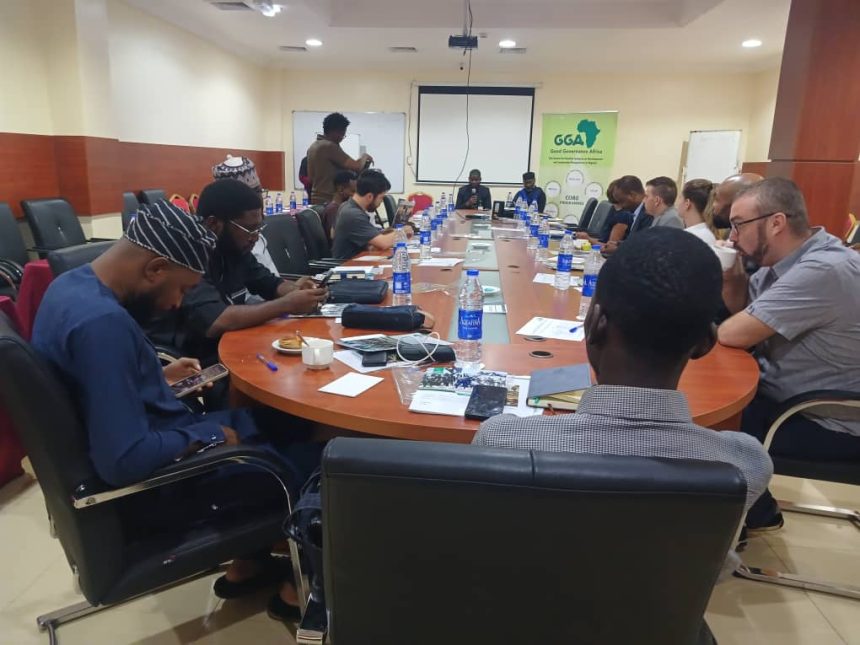… as GGA-Nigeria’s report shows ISWAP resurgence
Security experts have criticised the Nigerian government’s reliance on military/kinetic approaches to tackle insurgency, arguing that a more comprehensive strategy is needed to address the root causes of incessant conflict and attacks in the country.
The experts made this call on Tuesday, July 22, during a critical hybrid panel event organised by Good Governance Africa-Nigeria (GGA-Nigeria) at the Federal Capital Territory (FCT), Abuja.
The event, themed: “Reckoning with Resurgence: Rethinking Responses to ISWAP’s Evolving Threat.” featured the launch of GGA’s latest security report titled “Unseen Advances, Quiet Offensives: ISWAP’s Strategic Resurgence and the Limits of Nigeria’s Military Response”.
During his presentation, Malik Samuel, a lead conflict researcher at GGA, explained that both the Jama’atu Ahlis Sunna Lidda’awati wal-Jihad (JAS) and ISWAP had conducted over 300 attacks in the North-East region since the beginning of 2025.
The report notes that ISWAP is increasingly recognised as ISIS’s most active affiliate, responsible for more than a third of ISIS’s global attacks and nearly 30 per cent of its global casualty figures in the first half of 2025.
ISWAP has overrun at least 16 military bases in Nigeria, including Mallam Fatori, Pulka, Goniri, Rita, Buratai, Bulabulin, Wajiroko, Sabon Gari, Kumshe (overrun twice), Limankara, Buni Gari, Marte, Rann, Wulgo, Kanama, and Gajibo, within the first six months of 2025.
Reacting to these developments, a panel of security experts, consisting of the Special Adviser to the Chief of Defence Staff of Nigeria, Aliyu Gebi, and Policy-oriented researcher and international development practitioner, Mustapha Alhassan, argued that Nigeria’s continued reliance on kinetic approach to tackle insurgency will not meet desired outcomes.
“If there is political will, the insurgency can end next week,” Gebi said, adding that “as long as we don’t stop artisanal miners from giving them (terrorists) gold, the attacks will continue.”
He said authorities neglect the underlying structural and socio-political issues that fuel insurgency. “There are actors who need violence to remain in office, and there are actors who need violence to get to office.”
On his part, Alhassan said as politicians focus on the 2027 elections, terrorists are taking control of vulnerable communities and expanding their recruitment base.
The experts advocated for a shift towards intelligence-led policing, economic revitalisation of conflict zones, and regional diplomatic relations with countries like Niger and Chad. They also emphasised the need to address poverty, unemployment, and other socio-economic grievances that fuel insurgency.
Meanwhile, GGA Executive Director, Dr. Ola Bello, represented by a Senior Researcher, Adejumo Kabir Adeniyi, stressed the urgency of rethinking Nigeria’s counter-insurgency strategy beyond conventional warfare.
He reaffirmed GGA-Nigeria’s commitment to advancing security sector reform through evidence-based research, strategic dialogue, and stakeholder engagement.
Some of the attendees at the event included: Wyatt Chandler, US Embassy; Izabela Fink, EU Delegation; Colton Brudges, Canadian High Commission; Cristian Spiridon, Romania Embassy; Filip Torresde, Embassy of Ireland; Helen Wart, British High Commission; and Fredrik Ahsberg, Embassy of Sweden among others.
ALSO READ TOP STORIES FROM NIGERIAN TRIBUNE
WATCH TOP VIDEOS FROM NIGERIAN TRIBUNE TV
- Let’s Talk About SELF-AWARENESS
- Is Your Confidence Mistaken for Pride? Let’s talk about it
- Is Etiquette About Perfection…Or Just Not Being Rude?
- Top Psychologist Reveal 3 Signs You’re Struggling With Imposter Syndrome
- Do You Pick Up Work-Related Calls at Midnight or Never? Let’s Talk About Boundaries







